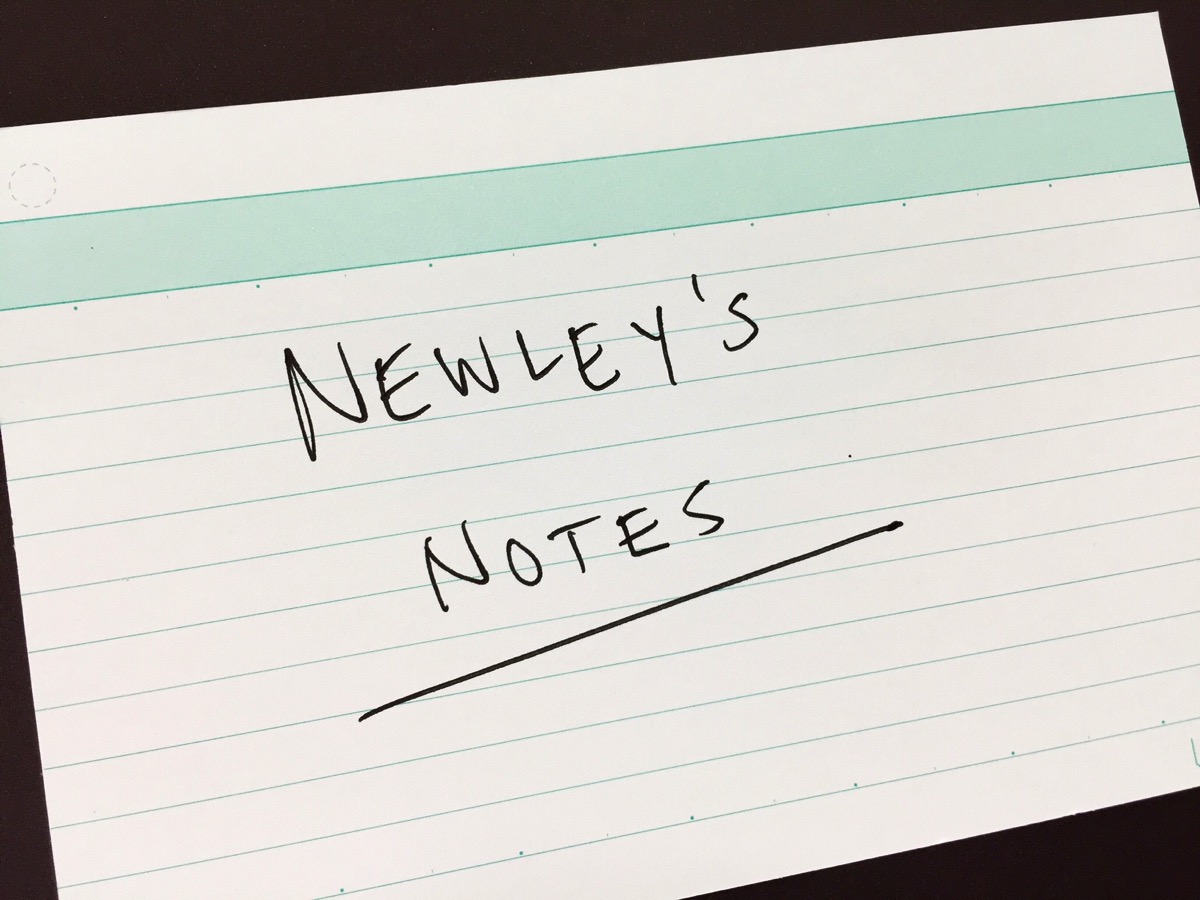
Edition 75 of my email newsletter went out to subscribers on Monday. It’s pasted in below.
To get these weekly dispatches delivered to your inbox before I post them here, enter your email address at this link. It’s free, it’s fun, it’s brief — and few people unsubscribe.
Hi friends, thanks for reading Newley’s Notes, a weekly newsletter in which I share links to my stories and various items that catch my eye.
WHAT I WROTE IN THE WSJ
- Inside India’s Unprecedented Assault on Cash – A story with a couple of very talented colleagues about how India PM Modi pulled off a bold move to eliminate the country’s largest-denomination bills. It begins:
NEW DELHI—Early last month, Prime Minister Narendra Modi summoned his cabinet to a room in India’s capital, told them to leave their cellphones outside and delivered a shocker: He was about to go on national television to declare that almost 90% of the country’s paper money would no longer be legal tender.
The move, prepared in secret by Mr. Modi and his advisers, kicked off a radical experiment in government control and instantly put India at the forefront of a nascent global campaign against cash. The European Central Bank has said it would stop printing the €500 note in 2018. Canada and Singapore have phased out their large-denomination bills. The Philippines, Denmark and others are tweaking regulations to nudge citizens to switch to electronic payments.
But no one has gone as far as Mr. Modi. Aiming to cut back tax dodging, terrorism and government corruption, he made India’s largest bank note and one of its most commonly used ones—the functional equivalents of America’s $100 and $20 bills—unusable overnight.
I also pitched in with a sidebar about some early winners in all of this: mobile payment companies.
“If we continue at this pace, within a month or two we will have made more progress than since our inception” in 2009, the founder of one such firm, MobiKwik, told me.
For more on demonetization, as the government’s move has been labeled, a reminder that a colleague and I did a Facebook Live video not long ago, which you can find online here.
- Facebook at 30,000 Feet? Not Above India – A story with a colleague on why, despite boasting one of the world’s fastest-growing aviation markets, India is still blocking passengers from using Wi-Fi in flight. It begins:
As more airlines roll out in-flight internet and regulators loosen rules governing wireless devices on planes, one country is a holdout in continuing to prohibit passengers from using Wi-Fi on board: India.
Home to the fastest-growing major air-travel market and a galloping economy, India hasn’t consented to the use of onboard Wi-Fi in its airspace due to security concerns.
Carriers including Emirates Airline, Jet Airways (India) Ltd. and Indian associates of Singapore Airlines and Malaysia’s AirAsia Bhd. say they are eager to offer Wi-Fi if only the government would allow it. Some have been lobbying New Delhi to change the law, according to aviation and tech industry executives.
FIVE ITEMS THAT ARE WORTH YOUR TIME THIS WEEK:
1) A remarkable, highly graphic collection of photos from Duterte’s war on drugs in the Philippines. Simply evastating: Photographer Daniel Berehulak captured for the NYT 57 killings in 35 days. A reminder of the power of visual journalism.
2) Tweetstorm: America’s institutions are screwed, Russia is hitting us hard with disinformation and leaks, but we’ll prevail. That’s the TLDR version of a super-long series of tweets from business analyst Eric Garland that everyone’s talking about on Twitter today.
3) Best Book of 2016, according to a bunch of academics, executives and others Bloomberg polled: “Hillbilly Elegy: A Memoir of a Family and Culture in Crisis,” by J. D. Vance. I haven’t read it yet, but intend to.
4) Why running seems to be good for your brain. In short, aerobic exercise appears to boost the production of cells in the hippocampus, writes Melissa Dahl at NYMag.com:
Not so many years ago, the brightest minds in neuroscience thought that our brains got a set amount of neurons, and that by adulthood, no new neurons would be birthed. But this turned out not to be true. Studies in animal models have shown that new neurons are produced in the brain throughout the lifespan, and, so far, only one activity is known to trigger the birth of those new neurons: vigorous aerobic exercise, said Karen Postal, president of the American Academy of Clinical Neuropsychology. “That’s it,” she said. “That’s the only trigger that we know about.”
5) Coolest market find ever: a piece of amber containing feathers from a dinosaur’s tail. NPR has the details:
In 2015, Lida Xing was visiting a market in northern Myanmar when a salesman brought out a piece of amber about the size of a pink rubber eraser. Inside, he could see a couple of ancient ants and a fuzzy brown tuft that the salesman said was a plant.
As soon as Xing saw it, he knew it wasn’t a plant. It was the delicate, feathered tail of a tiny dinosaur.
“I have studied paleontology for more than 10 years and have been interested in dinosaurs for more than 30 years. But I never expected we could find a dinosaur in amber. This may be the coolest find in my life,” says Xing,
Thanks for reading.
Love,
Newley